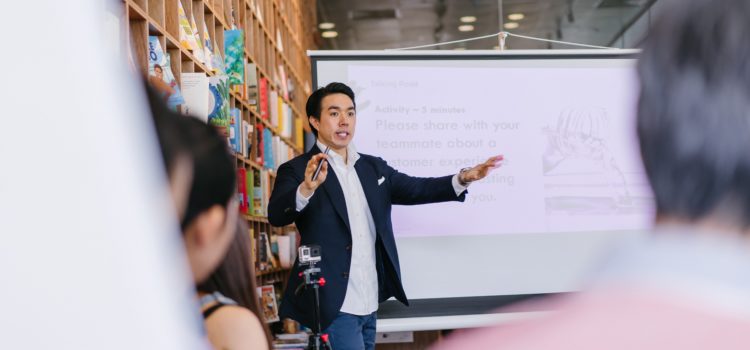

This article is an excerpt from the Shortform book guide to "The Extended Mind" by Annie Murphy Paul. Shortform has the world's best summaries and analyses of books you should be reading.
Like this article? Sign up for a free trial here.
Can learning through teaching or debate help you to learn more effectively? Why do these methods help to enhance your thinking?
According to science writer Annie Murphy Paul, thinking in a way that suits your brain’s biology helps you to tap into your full cognitive potential. Learning through teaching or debate is one way Paul claims you can understand complex ideas more thoroughly.
Keep reading to learn why Paul argues that learning through teaching or debate is most effective.
Why Thinking With Others Is Important
In The Extended Mind, Annie Murphy Paul explains that thinking with other people activates more complex parts of the brain than thinking alone, resulting in greater understanding, memory, and insight. Paul claims that learning through teaching or debate is one way you can use your social environment to enhance your cognition. She also states that ideally, you should set an alternating schedule in which you budget time to think alone as well as think with others.
In this article, we’ll explain Paul’s argument for learning through teaching or debate and why she says it’s an important tool for enhancing cognition.
(Shortform note: In Deep Work, Cal Newport offers several schedules you can use to balance thinking in solitude and engaging with others: With the “bimodal” schedule, you set aside several days, weeks, or months at a time to do nothing but engage in deep solitary work, and then you engage with the world when you get back. With the “rhythmic” schedule, you block out several hours every day to do deep work, and you make it a daily habit. With the “journalistic” schedule, you make it a habit to engage in deep solitary work every time you get a few minutes to yourself.)
Learning Through Teaching
One way you can use social interaction to enhance understanding is by teaching someone else—Paul argues that you can often learn more by teaching than by receiving personal instruction. The social and emotional pressure that you feel when preparing to teach someone else powerfully motivates you to comprehend the material. Additionally, by considering how best to explain the material, you prompt yourself to synthesize a more refined understanding of the topic. Teaching someone face-to-face is ideal since you’re motivated by the satisfaction of watching your students benefit from your work. However, you get some cognitive benefits by recording yourself for others to watch later, too.

———End of Preview———
Like what you just read? Read the rest of the world's best book summary and analysis of Annie Murphy Paul's "The Extended Mind" at Shortform.
Here's what you'll find in our full The Extended Mind summary:
- Why you don't need to withdraw into your mind to achieve optimal cognition
- Cognitive strategies and habits that will help you better understand complex ideas
- How gesturing with your hands helps you think better






